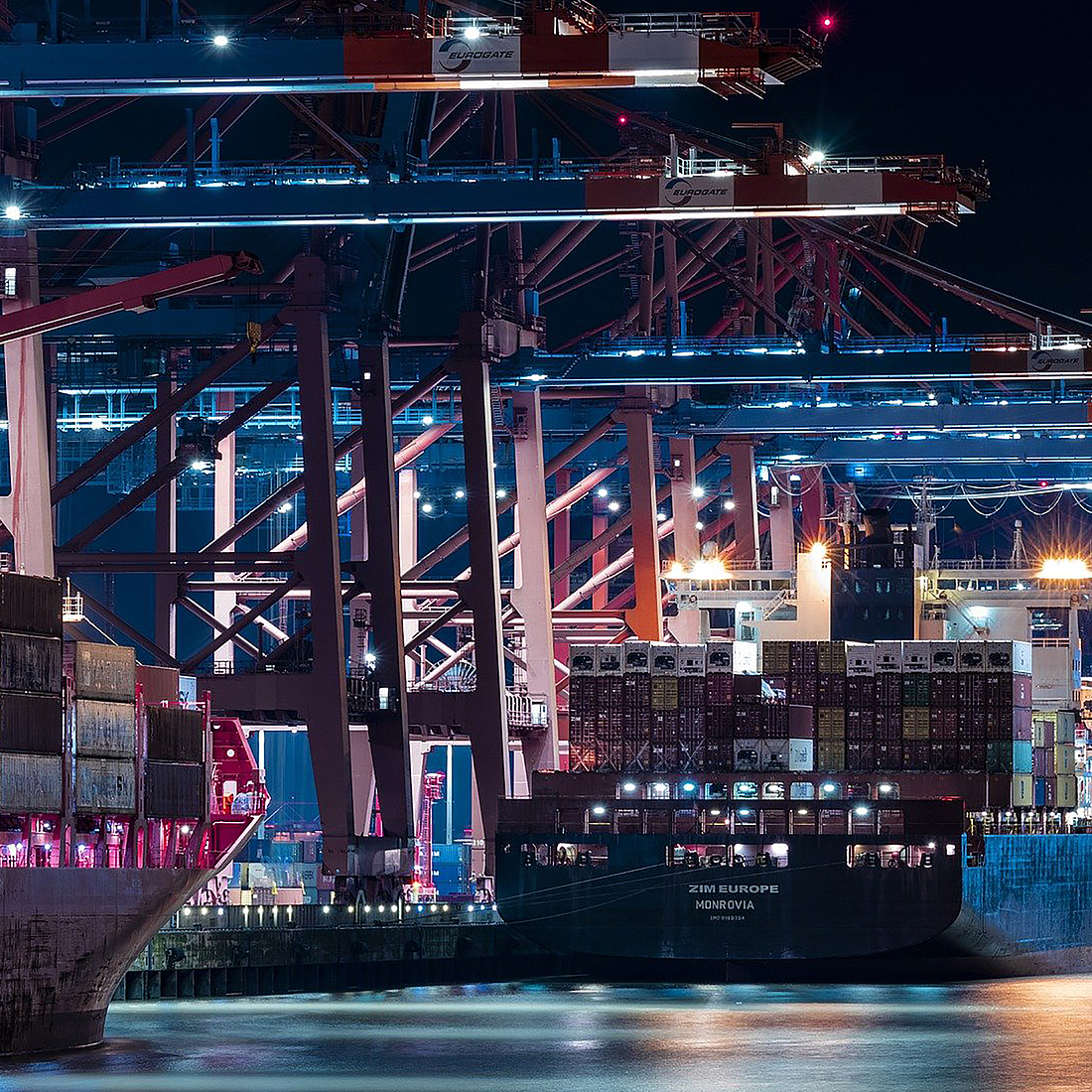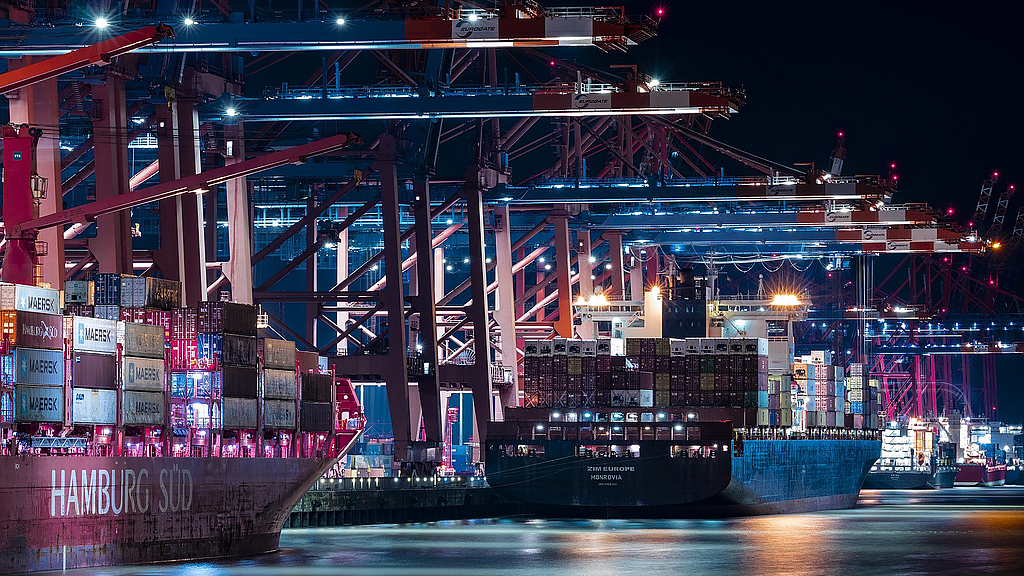Workshop report: „Blue Economy and the SDGs: Working together for a better Future in the Blue Economy”
Royal Holloway University London, Brunel University London and the German Maritime Museum, Leibniz-Institute for Maritime History (DSM), co-hosted the Online-Workshop “Blue Economy and the Sustainable Development Goals (SDGs): Working Together for a Better Future” on 9 June 2023. The main objective of the workshop was to discuss and deliberate on how the SDGs can be integrated into businesses’ strategic agendas and operations. The participants discussed the process innovations that can help achieve an integration and address how national and international regulations affect sustainability efforts in maritime businesses. The participants included business leaders, policy experts and senior scholars from Europe, Africa and Asia representing different maritime sectors including maritime transport, ports and infrastructure. The workshop was funded by the Centre for Critical and Historical Research on Organisation in Society (CHRONOS) at the Royal Holloway University of London.
In her welcome speech, Dr Guilia Achilli, Head of CHRONOS, stressed the need for critical and historical research which is interdisciplinary and questions existing and essentialized practices. In this regard, a historical understanding of present and future developments can play a crucial role in assisting communities and people to build a meaningful relationship with the environment.
Professor Ruth Schilling, Managing Director of the German Maritime Museum, contextualized our relation with the ocean from the perspective of historical heritage and its implications for the future. The research museum, funded by the German Leibniz Association, which is the largest of its kind in Europe, places ocean-related research, knowledge transfer and muti-stakeholder cooperation to address global challenges at the heart of its mission and integrates environmental, social and economic aspects in the maritime realm at the core of its work. Exhibition spaces and museums more broadly serve as depositories and platforms for actors of the Blue Economy to share expertise and establish new linkages in the field of ocean sustainability.
Ms Ayla Bajwa, Vice President for Group Sustainability at DP World, delivered the keynote address. She presented DP World’s initiatives such as “Our World, our future” which aim at creating economic value while simultaneously safeguarding communities and the environment. DP World’s sustainability strategy is linked to eleven of the seventeen SDGs with a focus on three legacy areas: water, education, and women. Water which encompasses safeguarding ocean health and restoring aquatic biodiversity (SDG14) and improving access to reliable clean water and sanitation (SDG6) is a new key area which shows the interconnectedness of the different SDGs. Ms Bajwa explained that as the company evolved from a mere ocean-related ports and terminal operator to a logistics company with inland operations, it has expanded its sustainability strategy to also include broader water issues such as water sanitation and access to water on land. Ms Bajwa further highlighted their main target of net zero carbon emissions by 2050. Initiatives to achieve this target include replacing fossil fuels with electric sources from green generators such as wind and solar power, implementing new technologies to improve efficiency, reducing energy consumption, and bringing down emissions across all business operations. To support this, Ms Bajwa also emphasized the centrality of ocean resilience and enhancing the ocean’s capacity to store carbon through the restoration and conservation of coastal and marine ecosystems. Beyond nature-based solutions, Ms Bajwa highlighted that inclusivity of and within communities is vital in protecting coastal areas and marine life. This plays a crucial role in DP World’s sustainability strategy and its progress towards a net zero economy. Ms Bajwa concluded by stressing the role of the private sector in addressing the lack of consistent ocean governance frameworks, engaging in reliable Blue Investment ($175 billion to fund SDG 14 by 2030), and working with governments on data-driven approaches, i.e. including Blue Carbon in national greenhouse gas inventories.
The workshop programme continued with three interactive sessions. The first session focused on how the UN Sustainable Development goals affect work practices in the Blue Economy and whether tensions exist between different SDGs. The second session concentrated on initiatives and innovative practices that have been developed and implemented in achieving sustainability. The final session addressed potential ways to achieve a sustainable Blue Economy in the future.
The sessions harnessed the participants’ unique experiences and areas of expertise. The key outcomes of the sessions are captured below.
1. Work practices in the Blue Economy
First, it is essential to balance economic growth and sustainability, as well as different SDGs. This, however, relies on economic and political interdependencies, available resources and the specific location in the world. In this context, a major tension exists between the eradication of poverty and other sustainability goals, especially in the countries of the global south. To overcome this challenge international collaborations, financial support and training schemes may be a way forward. Second, tracking the real progress towards the SDGs is undermined by a lack of quality data in key geographies and communities. It is important to invest in monitoring frameworks and data-based decision-making.
2. Achieving Sustainability in the Blue Economy
It is imperative to create a standard taxonomy for the Blue Economy in order to create congruence in approaches amongst various stakeholders and in different parts of the world. Second, it is also vital to create a chronicle of initiatives and best practices that have led to positive outcomes. This would enable sharing ideas and best practices across place and time. Finally, it would be useful to mainstream conversations and discussions on the Blue Economy and make them accessible to the larger public through media and other communication efforts.
3. Achieving a Sustainable Blue Economy in the Future
First, the common aspirations to meet the SDGs will be met only through innovative and agile partnerships. These partnerships would benefit from a ‘cluster’ approach, whereby innovation and knowledge ecosystems interact with investors, policymakers and communities for inclusive pathways towards the development goals. Traditional public-private partnerships need a 21st-century facelift. Second, traditional knowledge has to be protected and must be seen as an important vehicle in advancing the sustainability agenda. These must be complemented and supplemented with technology, innovation and modern policy tools. Incomes and livelihoods have to be catered to the communities, and no development proposition will succeed if it creates economic hardship amongst communities and in localities.
These three sessions generated important insights and perspectives and helped in creating an evolving and future-looking agenda for the Blue Economy.
Date: 9 June 2023, 15:00 – 17:00 pm
Organizers: Dr Paul Caussat, Royal Holloway University London
Dr Knut Lange; Royal Holloway University London
Dr Carolin Decker-Lange, Brunel University London
Dr Katharina Bothe, German Maritime Museum – Leibniz Institute for Maritime History


